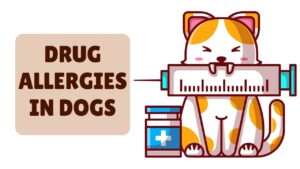Minerals are fundamental nutrients necessary for the proper functioning of a dog’s body.
From maintaining strong bones and teeth to supporting metabolic processes, minerals play diverse and essential roles in canine health.
In this comprehensive guide, we’ll explore everything you need to know about minerals for dogs, covering their functions, dietary sources, potential deficiencies, and more.
Contents Overview
The Importance of Minerals for Dogs
Minerals are inorganic elements that are critical for various physiological functions in dogs. They serve as cofactors for enzymes, help maintain fluid balance, support nerve function, and contribute to the structural integrity of tissues such as bones and teeth.
Essential Minerals for Dogs
Dogs require a variety of minerals for optimal health. Some of the most important minerals for dogs include:
- Calcium: Essential for bone and teeth health, muscle function, and nerve transmission.
- Phosphorus: Works alongside calcium in bone formation and is also involved in energy metabolism.
- Magnesium: Important for enzyme function, muscle and nerve function, and bone health.
- Potassium: Helps maintain fluid balance, nerve function, and muscle contraction.
- Sodium and Chloride: Essential for fluid balance, nerve function, and acid-base balance.
- Iron: Necessary for the formation of hemoglobin and oxygen transport in the blood.
- Zinc: Important for immune function, wound healing, and skin health.
- Copper: Required for the formation of connective tissues, pigment production, and iron metabolism.
Dietary Sources of Minerals for Dogs
Minerals can be obtained from various dietary sources. Common sources of minerals for dogs include:
- Meat: Lean meats like beef, chicken, and turkey are rich in essential minerals such as iron and zinc.
- Bones: Raw bones can provide calcium and phosphorus, but they should be fed cautiously to avoid choking or gastrointestinal issues.
- Fish: Certain types of fish, such as salmon and sardines, are excellent sources of minerals like calcium, phosphorus, and magnesium.
- Fruits and Vegetables: Leafy greens, carrots, sweet potatoes, and berries can provide minerals such as potassium, magnesium, and manganese.
- Commercial Dog Foods: High-quality commercial dog foods are formulated to provide balanced nutrition, including essential minerals.
Signs of Mineral Deficiencies in Dogs
Mineral deficiencies can lead to various health problems in dogs. Some signs of mineral deficiencies include:
- Weak Bones: Calcium and phosphorus deficiencies can lead to weak bones and skeletal deformities.
- Dull Coat: Zinc deficiency may result in a dull, dry coat and skin issues.
- Lethargy: Iron deficiency can cause lethargy, weakness, and pale gums due to anemia.
- Muscle Weakness: Potassium deficiency may lead to muscle weakness and cramping.
Preventing Mineral Deficiencies
To prevent mineral deficiencies, it’s crucial to feed your dog a balanced diet that includes a variety of nutrient-rich foods. Commercial dog foods labeled as “complete and balanced” are formulated to meet dogs’ nutritional needs, including essential minerals.
Consulting a Veterinarian
If you suspect your dog has a mineral deficiency or imbalance, consult your veterinarian. They can perform diagnostic tests, recommend dietary adjustments, or prescribe supplements if necessary.
Bottom Line
Minerals are essential for maintaining the overall health and well-being of dogs, supporting vital functions such as bone health, muscle function, and immune response. By providing a balanced diet rich in essential minerals and consulting with a veterinarian as needed, you can help ensure that your canine companion stays happy, healthy, and thriving for years to come.


































+ There are no comments
Add yours